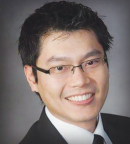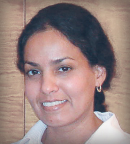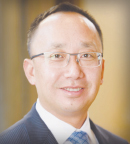The ASCO Post’s Integrative Oncology series is intended to facilitate the availability of evidence-based information on integrative and complementary therapies sometimes used by patients with cancer. In this installment, Yen Nien (Jason) Hou, PharmD, DiplOM, LAc, and Jyothirmai Gubili, MS, focus on Xiao Yao San, a formulation of herbs and dried plants used in traditional Chinese medicine for relieving anxiety and depression.

Yen Nien (Jason) Hou, PharmD, DiplOM, LAc

Jyothirmai Gubili, MS
Common Names: Free and Easy Wanderer, Rambling Powder, Dan Zhi Xiao Yao San, Augmented Rambling Powder, Kamishoyosan, TJ-24
Overview
Several studies have shown higher rates of depression and anxiety in patients with cancer compared with the general population.1,2 Surveys also indicate that patients suffer from depressive spectrum disorders in oncologic, hematologic, and palliative settings that substantially impair quality of life.3 Although standard treatments are effective, they are associated with adverse effects such as sleep difficulties, fatigue, nausea, weight gain, anxiety, dry mouth, blurred vision, and sexual dysfunction.4
Xiao Yao San is a traditional Chinese medicine formula documented in the compendium of prescriptions written in the 11th century. Consisting of eight herbs, this formula has a long medicinal history as a remedy for relieving stress and for treating depression and anxiety. A modified formulation with two additional herbs—Jia Wei Xiao Yao San—is also used widely to reduce anxiety and fatigue as well as to manage mood swings associated with climacteric syndrome (gradual changes of ovarian function that start before the menopause.)
The Science
In a systematic review (26 randomized controlled trials including 1,837 patients with depression), Xiao Yao San and its modified forms combined with antidepressants were found to be superior to antidepressants alone in alleviating depression based on the Hamilton Depression Rating Scale (HAMD; P < .0001 with significant heterogeneity I2 = 76.3%). The antidepressants used in these studies included selective serotonin reuptake inhibitors, tricyclics, or tetracyclics.
The analysis also revealed that the traditional Chinese medicine formulas did not increase the rate of adverse events, such as dizziness and headache, somnolence, dry mouth, bloating, constipation, diarrhea, tachycardia, blurred vision, insomnia, fatigue, anxiety, tremors, anorexia, palpitations, excitation, hypertension, bellyache, dysuria, prolonged QT increase in transaminase, and sexual dysfunction (P < .00001 with significant heterogeneity I2 = 87.2%).4
Guest Editor

Jun J. Mao, MD, MSCE
Integrative Oncology is guest edited by Jun J. Mao, MD, MSCE, Laurance S. Rockefeller Chair in Integrative Medicine and Chief of Integrative Medicine Service at Memorial Sloan Kettering Cancer Center, New York.
A meta-analysis (40 trials of Chinese herbal medicine with 3,549 participants diagnosed with depression) including 11 Xiao Yao San studies also found herbal formulas to have affected improvements in HAMD scores, leading to improved clinical outcomes. In addition to causing fewer adverse effects compared with antidepressants (P < .01), when used concomitantly, they also decreased the side effects caused by antidepressants (P < .01).5
Similar findings were reported in another large meta-analysis (55 studies with 5,572 participants with depression) that included 12 Xiao Yao San trials. Those randomly assigned to traditional Chinese medicine formulas (with or without selective serotonin reuptake inhibitors) had improvements in HAMD scores along with less severe and fewer side effects.6
Xiao Yao San may have relevance in oncology settings. Conclusions from a review (18 trials with 1,441 patients who had gastric, lung, esophageal, breast, and liver cancers) that included 4 Xiao Yao San studies suggest benefits of traditional Chinese medicine formulas over conventional antidepressants. These benefits included improvements in HAMD scores and fewer adverse effects that comprised functional gastrointestinal disorders, sleep disturbances, blurred vision, and fatigue.7
Jia Wei Xiao Yao San
In a multicenter trial, 192 patients with mild-to-moderate depression and anxiety were randomly assigned to treatment with Jia Wei Xiao Yao San or sertraline for 8 weeks. Patients who received Jia Wei Xiao Yao San had similar improvements in HAMD and Clinical Global Impression Scale scores as those who received sertraline. Notably, Jia Wei Xiao Yao San also improved the quality of sleep and was associated with lower rates of adverse events compared with sertraline, although the difference was statistically insignificant.8
Subjective improvements in sleep quality were reported in another small trial as well. It compared the effectiveness of Jia Wei Xiao Yao San alone vs Jia Wei Xiao Yao San combined with estazolam.9
Given these promising findings, it is important to note that many studies included in the previously mentioned analyses are limited by poor study design, small sample size, high risk of bias, and variations in treatment dosage and duration. Larger, methodologically robust trials are needed to evaluate the true potential of both Xiao Yao San and Jia Wei Xiao Yao San.
The mechanisms via which these formulas exert biologic effects are also not well understood. The antidepressant effects of Jia Wei Xiao Yao San are attributed to its regulation of lactic acid, glycerol, glutamine, glutamic acid, hypoxanthine, myo-inositol, and cholesterol levels, which are known to play a role in D-glutamine and D-glutamate metabolism, arginine biosynthesis, as well as alanine, aspartate, and glutamate metabolism.10
Adverse Reactions
Jia Wei Xiao Yao San may cause headache, dizziness, fatigue, and mild diarrhea.11
Herb-Drug Interactions
Fluorouracil: High-dose Jia Wei Xiao Yao San (2,400 mg/kg/d) increased the half-life of fluorouracil in the brain along with reducing its clearance, in a murine model.12
Paclitaxel: Jia Wei Xiao Yao San decreased the AUC and Cmax of paclitaxel by 1.5-fold both in plasma and lymph, in a murine model. The half-life of paclitaxel increased from 73 minutes to 111 minutes.13
Tamoxifen: In vitro and in vivo studies have shown that mid to high doses of Jia Wei Xiao Yao San (2.6–3.9 g/kg) do not affect any significant changes in tumor weight or in the expression of AKT, ERK, p38, and p27 kip1 genes. However, a low dose (1.3 g/kg) was associated with reduced expression of the LC3-II gene.14
In addition, the clinical implications of these previously mentioined interactions have yet to be determined.
Summary
Xiao Yao San and Jia Wei Xiao Yao San are traditional Chinese medicine herbal formulas shown to reduce depression and anxiety. Both can be used with or without conventional treatments; when used concurrently, they reduce the adverse effects of standard therapies. This allows oncology care teams to offer multiple treatment options, ultimately enhancing patient satisfaction and potentially improving clinical outcomes. It is also important to guide patients to seek licensed traditional Chinese medicine practitioners experienced in working with patients who have cancer for proper use of these formulas.15
DISCLOSURE: Dr. Hou and Ms. Gubili reported no conflicts of interest.
REFERENCES
1. Mitchell AJ, Chan M, Bhatti H, et al: Prevalence of depression, anxiety, and adjustment disorder in oncological, haematological, and palliative-care settings: A meta-analysis of 94 interview-based studies. Lancet Oncol 12:160-174, 2011.
2. Krebber AMH, Buffart LM, Kleijn G, et al: Prevalence of depression in cancer patients: A meta-analysis of diagnostic interviews and self-report instruments. Psychooncology 23:121-130, 2014.
3. Petrova D, Catena A, Rodríguez-Barranco M, et al: Physical comorbidities and depression in recent and long-term adult cancer survivors: NHANES 2007–2018. Cancers (Basel) 13:3368, 2021.
4. Zhang Y, Han M, Liu Z, et al: Chinese herbal formula xiao yao san for treatment of depression: A systematic review of randomized controlled trials. Evid Based Complement Alternat Med 2012:931636, 2012.
5. Wang Y, Shi YH, Xu Z, et al: Efficacy and safety of Chinese herbal medicine for depression: A systematic review and meta-analysis of randomized controlled trials. J Psychiatr Res 117:74-91, 2019.
6. Yang L, Shergis JL, Di YM, et al: Managing depression with Bupleurum chinense herbal formula: A systematic review and meta-analysis of randomized controlled trials. J Altern Complement Med 26:8-24, 2020.
7. Li M, Chen Z, Liu Z, et al: Twelve Chinese herbal preparations for the treatment of depression or depressive symptoms in cancer patients: A systematic review and meta-analysis of randomized controlled trials. BMC Complement Altern Med 19:28, 2019.
8. Su R, Fan J, Li T, et al: Jiawei Xiaoyao capsule treatment for mild to moderate major depression with anxiety symptoms: A randomized, double-blind, double-dummy, controlled, multicenter, parallel-treatment trial. J Tradit Chin Med 39:410-417, 2019.
9. Li Y, Xu BY, Xiao F: [Effect of modified xiaoyao powder for improving sleep in patients with psychological stress insomnia]. Zhongguo Zhong Xi Yi Jie He Za Zhi 29:208-211, 2009.
10. Liu X, Wei F, Liu H, et al: Integrating hippocampal metabolomics and network pharmacology deciphers the antidepressant mechanisms of Xiaoyaosan. J Ethnopharmacol 268:113549, 2021.
11. Feng DD, Tang T, Lin XP, et al: Nine traditional Chinese herbal formulas for the treatment of depression: An ethnopharmacology, phytochemistry, and pharmacology review. Neuropsychiatr Dis Treat 12:2387-2402, 2016.
12. Chiang MH, Chang LW, Wang JW, et al: Herb-drug pharmacokinetic interaction of a traditional chinese medicine jia-wei-xiao-yao-san with 5-fluorouracil in the blood and brain of rat using microdialysis. Evid Based Complement Alternat Med 2015:729679, 2015.
13. Hou ML, Lu CM, Tsai TH: Effects of jia-wei-xiao-yao-san on the peripheral and lymphatic pharmacokinetics of paclitaxel in rats. Evid Based Complement Alternat Med 2016:5614747, 2016.
14. Chen JL, Chang CJ, Wang JY, et al: In vitro and in vivo effects of jia-wei-xiao-yao-san in human breast cancer MCF-7 cells treated with tamoxifen. Integr Cancer Ther 13:226-239, 2014.
15. National Certification Commission for Acupuncture and Oriental Medicine. Available at https://www.nccaom.org. Accessed February 23, 2022.
Dr. Hou is the Manager of the “About Herbs” website, maintained by Memorial Sloan Kettering Cancer Center’s Integrative Medicine Service, and Ms. Gubili is Editor, both at the Integrative Medicine Service, Memorial Sloan Kettering Cancer Center, New York.

